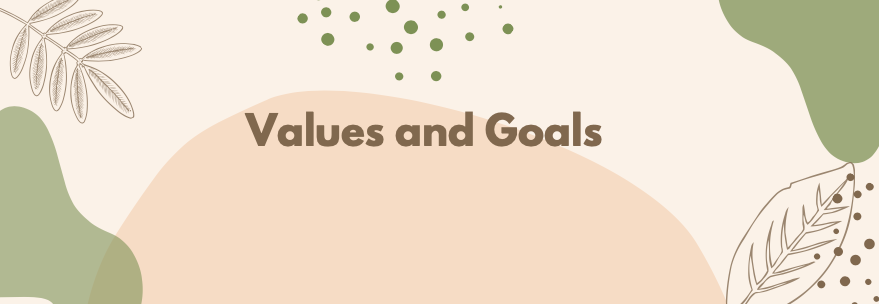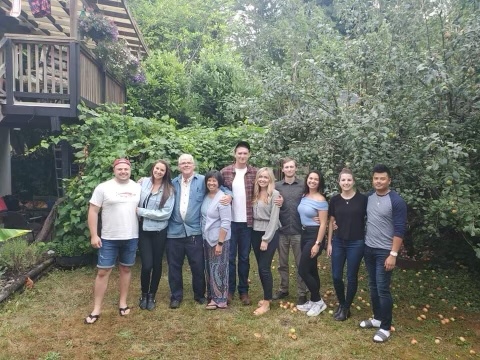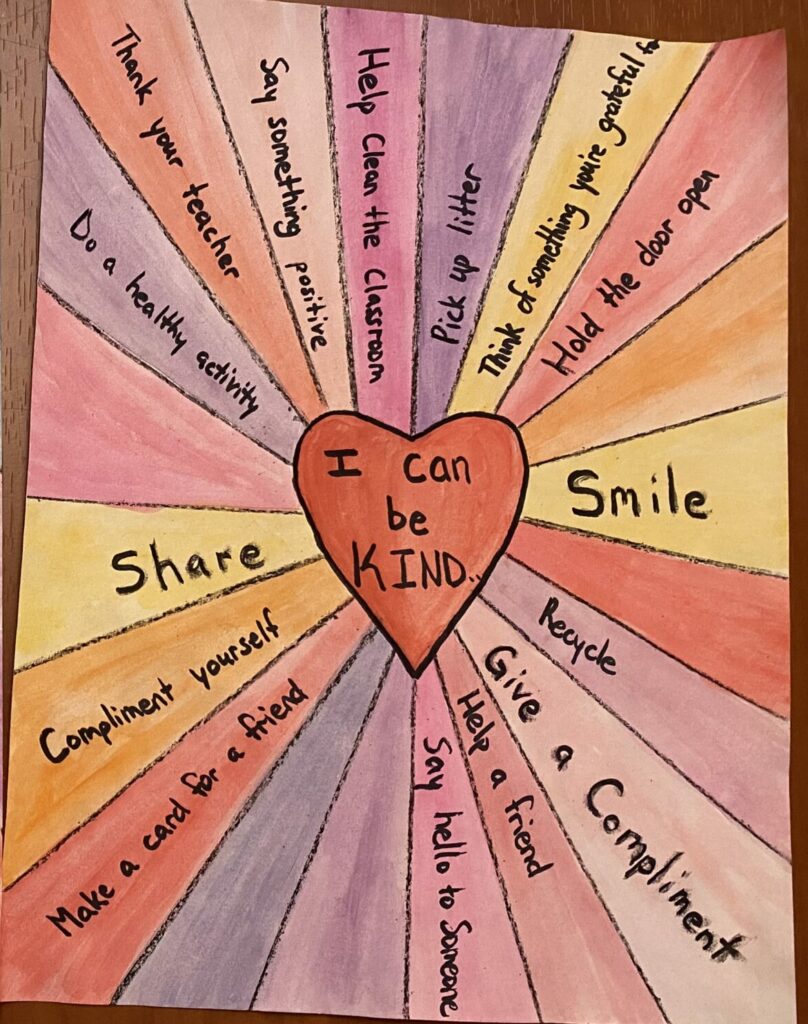
Pedagogical Values
To share my pedagogical values, I have decided to share an excerpt from my Philosophy Statement that I wrote during my experience in the B.Ed program. As I have continue to grow as an educator, I found that this paper guides my intentions as I align my values with these philosophies. These values may adapt over time as my learning as an educator continues to ebb and flow with growth and experiences. I’ve learned that re-reading this paper helps me to further define my pedagogical alignment, and have decided to share, enjoy!
Pedagogical Philosophy Statement
In the early stages of my teaching career, I work towards defining my personal pedagogical philosophy to foster a holistic learning experience to cultivate an environment for students to flourish in mind, body, and spirit. As I explore my personal philosophy, I recognize that my beliefs and values align with contemporary philosophies such as progressivism and social reconstructionism. Through this contemporary philosophical base, I reflect on my own personal experiences in education as a learner and my experiences in teaching roles, to intentionally connect these experiences with my epistemology and pedagogy. Through defining my educational philosophy, I will gain a better understanding of why, what, and how I want to teach in the future. This distinction can allow my teaching practice to grow roots in a strong foundation of learning strategies such as experiential, active inquiry, democratic discussions, problem solving, and community-based learning (Edmunds et al., 2015, 223). With foundations of progressivism and reconstructionism, I can embed the BC curriculum and core competencies, interwoven across these (amongst) strategies to facilitate a cross-curricular trajectory.
“Having a passion for an education system that offers equality of opportunity for everyone is at the heart of what every teacher should be striving for”
John Dewey
As found in John Dewey’s theory of pragmatism, “having a passion for an education system that offers equality of opportunity for everyone is at the heart of what every teacher should be striving for” (Bates, 2019, 21). I believe every student deserves equal opportunity to learn, despite what varying circumstances they may be experiencing. That being said, I believe it is important to begin that learning process through a reciprocal relationship foundation built on connection and mutual respect for the individual’s place, culture, and being. By establishing an understanding of the individual’s interests, the teacher can then select ideas from within the students’ experience that have the potential to present a meaningful purpose (Edmunds et al., 2015, 224). As Dewey suggested, “such [ideas] arouse in the learner an active quest for information and for production of new ideas” (Dewey, 1938, 79).
“Encouraging learners to share [their] thoughts will allow the teacher to get to know the learner better and benefit the overall learning experience of the class”
Bob Bates
This theory resonated deeply with me, as I strongly believe that encouraging learners to engage in discussion of their own thoughts and perceptions will lead to a deeper level of understanding. It allows for unique perceptions to be shared across learners in a group setting, creating new perspectives that may have not been considered previously. Furthermore, it also encourages empathy, as it encompasses the ability to imagine and understand the thoughts, perspectives, and emotions of another person (Oxford University Press, 2021).
As John Dewey wrote in his book titled “The Child and the Curriculum”, learning should begin with the child’s experience rather than with the curricular objectives or contents (Edmunds et al., 2015, 191). Dewey believed that seeing the curriculum simply as content to be transmitted by the teacher to the students through direct instruction left the students as inactive recipients rather than engaged learners. I believe that Dewey’s five steps to teaching align with my personal beliefs of the focus being on thinking to understand how to introduce problem solving for students to encourage inquiry-based learning (Edmunds et al., 2015, 191). Through scaffolding and active engagement, education can assist students in becoming citizens who can properly analyze and work through complex problems (Edmunds et al., 2015, 191). In my teaching practise, I hope to act as a facilitator of learning through connecting the student’s experience to the curriculum.
Additionally, through the lens of social reconstructionism, I wonder what the world would look like if instead similarities, connections, and kinship were taught and celebrated. I believe that education is a powerful tool that can be used to redefine community and cultural connections. This philosophy suggests that teachers and schools can be agents of change by inspiring a new and more equitable social order, activating the social consciousness of students (Edmunds et al., 2015, 228). In my teaching practise, I hope to facilitate an environment where students may feel safe and celebrated in their culture, community, and individuality. I believe it is important for students to have an understanding of the world around them, with the ability to objectively discuss real-world influences. “Truth has been defined by the powerful but does not necessarily reflect the realities of the less-privileged groups” (Edmunds et al., 2015, 228). This powerful quote is important to acknowledge and consider, however, I believe it is important to objectively consider these topics with students to allow room for growth of personal opinion and identity.
References
Bates, B. (2019). Learning Theories Simplified (2nd ed.). SAGE Publications Ltd., London, England.
Dewey, J. (1938). Experience and Education. Macmillan Co., New York. https://www.worldcat.org/title/experience-and-education/oclc/755363
Dweck, C. S. (2007). Mindset: The New Psychology of Success. Ballantine Books.
Edmunds, A., Nickel, J., & Badley, K. (2015). Educational Foundations in Canada. Oxford University Press. https://learn.unbc.ca/bbcswebdav/pid-246462-dt-content-rid-2126224_1/courses/50617.202105/EDUC%20393%20-%20ed%20philosophies%20and%20pedagogical%20bases.pdf
Oxford University Press. (2021). Oxford Dictionary. Empathy. https://www.oxfordreference.com/view/10.1093/oi/authority.20110803095750102
Personal Values. My most personal values are family, friends, kindness and experience.
I value my family and friends because they have been the foundation of support throughout my education experience. They have encouraged me to pursue my dream of becoming a teacher and have provided positive reinforcement along my journey. My mother was an elementary school teacher and demonstrated exemplary role model leadership that I aspire to live up to. Her constant mentorship throughout my education journey towards becoming a teacher provided me the strength to reflect and grow. I am very grateful for my family and friends constant support and positive words of encouragement!

I value kindness because I believe it plays an integral part in fostering reciprocal relationships. Showing another individual kindness can create a genuine connection. I believe this applies to all aspects in life, including establishing connections and relationships with students and peers. Actions rooted in kindness can create a positive and safe environment.

I value experience. Travel and outdoor activities are some of the experiences that I value the most in my life. I’ve been very fortunate to have travel opportunities to many different regions around the world, and I discovered that these were some of the best learning opportunities in my life. I also have discovered that outdoor activities provide memorable experiences that inspire connection with the environment.


My Goals…
Goals. I aspire to further my education in the future and complete my Masters in Education. At this time, I am interested in further my learning in Special Education and would be grateful for the opportunity to complete my Master’s in this. I hope to gain experience teaching in the classroom for a few years before continuing my education. We will see what the future has in store!
